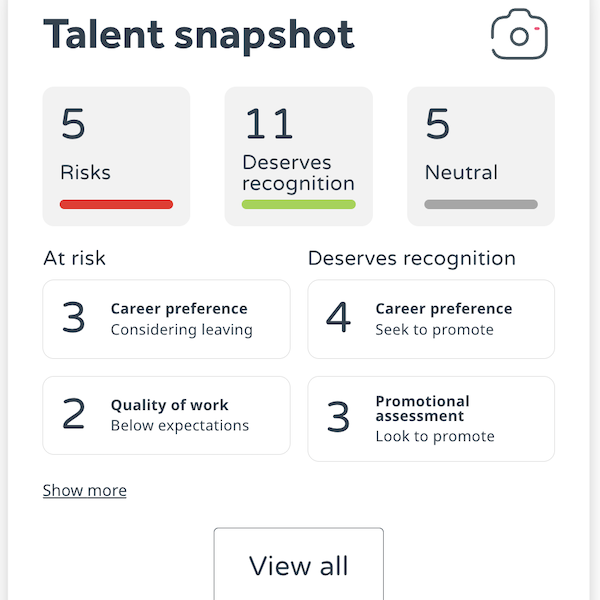What is an individual stress risk assessment?
An individual stress risk assessment is a tool to help employers and managers measure, understand and act on employee feedback. With a focus on identifying and alleviating stressors, an individual stress risk assessment can help you to develop a more confident and engaged workforce.
But why is it important to reduce stress at work? A bit of pressure such as working to deadlines and meeting KPIs can be great for keeping employees motivated and productive. However, an unhealthy amount of stress can result in anxiety, physical sickness, and ultimately, disengagement.
Among the people who report high stress 51% are disconnected from their work. This ultimately results in poorer quality of work, lower productivity, increased absence and less interest in helping the company or its customers to achieve their goals.
Why is an individual approach important?
There’s lots of talk about the importance of a stress risk assessment, particularly from HSE who recommend that every workplace administers one and acts on their findings to create a less stressful environment.
An individual stress risk assessment can transform your people strategy by empowering staff to own their personal employee experience in partnership with management. Back in the days when we commuted to work, sat in team pods and made regular small talk, it’s fair to say that we shared a lot in common.
However, after a year of remote work with employees living in completely different circumstances, our working lives are no longer reflective of this shared team experience. Instead, we are operating on a far more individual level, where our needs may be totally different to the person we used to sit five feet away from.
Therefore, it is critical that we begin to take an individual approach to employee engagement and utilise an individual stress risk assessment to reach this goal.
 How do I identify stressed employees?
How do I identify stressed employees?
Spotting the signs of stress in remote or hybrid teams isn’t easy. However, by asking the right questions in your individual stress risk assessment you’ll be able to take swift, specific action to boost each individual’s engagement.
Ask focused questions to ensure that their needs are being met. For example, how much of the time do you have the resources you need to do your job well? How much of the time do you feel you get sufficient headspace at work?
These questions will allow you to identify where stress is building. Once you know this, you’re one step closer to combating the causes of stress.
Individual stress risk assessment example
An individual stress risk assessment works in a similar way to WeThrive’s non-anonymous employee engagement survey. It gives you a deeper dive into the underlying stressors your people face at work and recommendations for improvement.
Check out a sample PDF here.
Want to learn more? Sign up for WeThrive’s wellbeing risk assessment, designed to identify and resolve causes of stress, anxiety and disengagement.
 How do I identify stressed employees?
How do I identify stressed employees?
